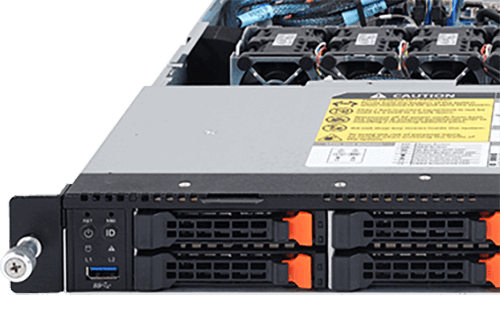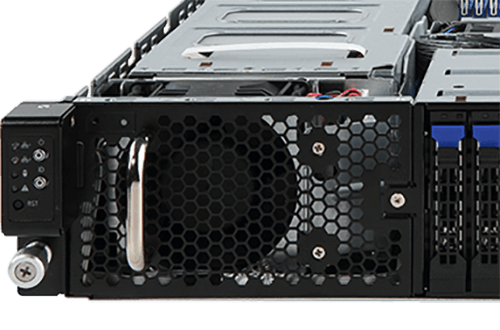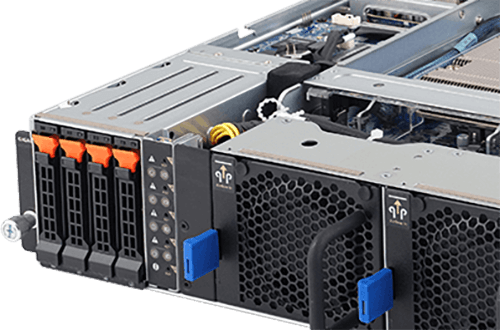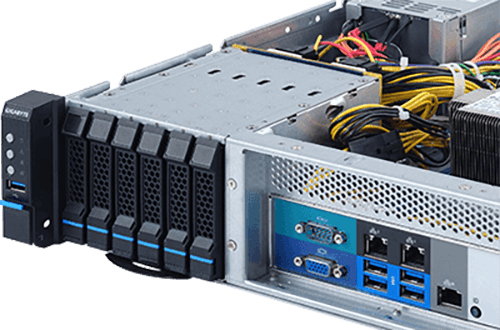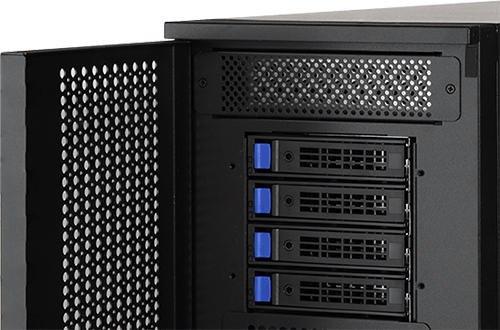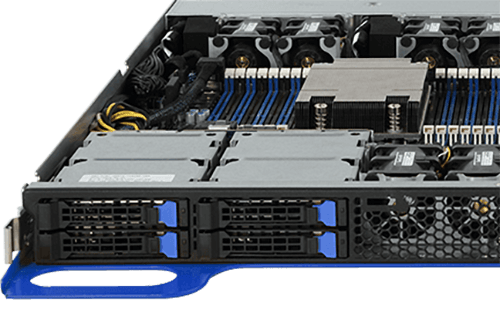GV-RX80L256V
- Powered by ATI RadeonTM X800XL VPU
- Supports PCI Express and 16 pipelines
- Microsoft DirectX 9.0C and OpenGL 2.0 support
- Integrated with the industry's best 256MB GDDR3 memory and 256-bit memory interface
- Features DVI-I / D-sub / TV-OUT
- Supports HDTV function and HDTV cable enclosed
- Supports VIVO function for video editing
- Unique Silent-Pipe design
-
Introduction
 GIGABYTE introduced the GV-RX165T256D-RH that features the latest 90 nanometer Radeon™ X1650XT visual processors. In addition to the dual guarantee of performance and cooling, GIGABYTE GV-RX165T256D-RH fully supports Microsoft® Direct®X 9.0 Shader Model 3.0 and integrates with Radeon™ X1650XT GPU and the high-performance 256 MB GDDR3 video memory to ensure high performance PC gaming and digital media playback.
GIGABYTE introduced the GV-RX165T256D-RH that features the latest 90 nanometer Radeon™ X1650XT visual processors. In addition to the dual guarantee of performance and cooling, GIGABYTE GV-RX165T256D-RH fully supports Microsoft® Direct®X 9.0 Shader Model 3.0 and integrates with Radeon™ X1650XT GPU and the high-performance 256 MB GDDR3 video memory to ensure high performance PC gaming and digital media playback. -
GIGABYTE V-tuner2
 Real time monitoring the temperature, coolling fan speed and coltage of the graphics card, and dynamically control the working frequency and fan speed to let your graphics card always run at the best condition. GIGABYTE V-tuner2 provides a user-friendly and simple interface for overclocking, and allows users to dynamically adjust core and memory clocks.
Real time monitoring the temperature, coolling fan speed and coltage of the graphics card, and dynamically control the working frequency and fan speed to let your graphics card always run at the best condition. GIGABYTE V-tuner2 provides a user-friendly and simple interface for overclocking, and allows users to dynamically adjust core and memory clocks. -
Widescreen resolution support
Resolution Colors (bits) Refresh Rate (Hz) 16:10 1920 x 1200 8/16/32 75 16:9 1920 x 1080 8/16/32 85
*Resolutions are limited by the performance of the attached monitor. 16:9 / 16:10 aspect ratio monitors are only supported on Windows® XP. The complete list of resolutions depends on the driver version and operating system.

* Terminy „HDMI” oraz „ HDMI High-Definition Multimedia Interface ”, charakterystyczny kształt produktów HDMI (HDMI trade dress) oraz Logo HDMI stanowią znaki towarowe lub zastrzeżone znaki towarowe spółki HDMI Licensing Administrator, Inc.
* Zamieszczony materiał został udostępniony jedynie w celach informacyjnych. GIGABYTE zastrzega sobie prawo do wprowadzania zmian w specyfikacji produktu i udostępnionych informacji o produkcie bez wcześniejszego powiadomienia.
* Przedstawiane dane są oparte na maksymalnych teoretycznych wydajnościach przedstawionym przez producentów chipsetów lub organizacji określających zakres tych specyfikacji. Rzeczywista wydajność może się różnić w zależności od konfiguracji systemu.
* Wszystkie znaki towarowe są własnością ich właścicieli.
* Z uwagi na budowę systemu, zakres pamięci może się różnić.







